|
By Manuel Players: 1 Platforms: Nintendo Switch, PC Ceiba is a biopunk visual novel that is now available for the Nintendo Switch following an earlier release on Steam. It's developed by Studio Wirion, and published by Valkyrie Initiative. It's not your standard visual novel though as it has a unique sci-fi setting, a (somewhat) alien species who make up the main cast, and a plot that's centered on plant-based technology. The latter point may sound a bit confusing out of context, but this is a biopunk story after all. We're going to be looking at the game and see if it's worth picking up or not, and while that's a somewhat obvious task, this is anything but a normal game. Describing the plot of Ceiba is a bit complicated as it not only deals with an alien world, but also with a people who are both similar, yet very different, from humans as we know them. You take on the role of Ayn, an artiphyt who works in the bio lab about the research ship "Ailanthus". You and the other artiphyts on board the ship are manufactured humanoid beings that have certain animalistic traits that set you apart from "standard" humans. These traits include animal-like ears, tails, and so on. Artiphyts also all have a plant-based symbiont attached to them that blooms and grows around their bodies. These symbionts make artiphyts more plant than mammal, and they also make them far more resilient than humans could ever be. Artiphyts can actually reassemble themselves if hurt by way of these symbionts, and they have far more basic nutritional needs to survive. This last point is important as the crew of the Ailanthus was sent from Earth to the planet Metnal to see if it could be made to be inhabitable by humans. That mission seems to have hit a dead end though, and is at best stagnated, and at worst a failure by the time the game begins. The planet of Metnal did contain life at one point, and was apparently once home to an alien species, though all that now remains of these Metnalians is their ruins. Bored by the monotony of his work, Ayn finds himself interested in a girl named Miri, who always seems to eat her meals alone. After working up the courage to speak to her, he learns that she works in the engine room of the ship, and longs to go to the surface of Metnal to find the source of a distress signal she's received via the ship's radio. Her boss, Sabu, thinks that this is just a message reflected form Earth, but she's determined to learn what lies behind it. Partly due to his interest in Miri, and partly out of a desire to make actually make significant progress in their mission, Ayn goes against his better judgement and decides to conspire to investigate the planet with this mysterious, rabbit-eared girl. Along the way his boss, Yoli, and Sabu seek to stop their subordinates' actions, but they too possibly desire for more than an endless round of testing for a planet and people that have pretty much left them to die. There's far more of the story to discuss, but we'll leave that for a bit later on. Ceiba is your standard visual novel when it comes to gameplay, but there are a few things that make it a bit more unique. First up is the fact that other character's dialogue is placed into word bubbles, instead of in the text box that all of Ayn's dialogue and thoughts go into. Also, you can rewind and fast forward pretty far in each direction, and even replay decisions that you've changed your mind on. These small points aside, there aren't that many surprises here for players already familiar with how these kind of games work. Basically you're experiencing a story, and every so often a choice pops up that can take said story into one of several unique directions. Some of these choices are important to the plot, and others simply change an optional dialogue section or two. Ceiba is a rather short game, so it doesn't take too long for you to see the result of all your choices if that's what you're looking to do. There are actually are a few choices that have no effect whatsoever. Sometimes you'll be given a "selection" of just one dialogue option, and other times you'll be given three option, but all of them result in the same outcome. This is usually done for dramatic effect, and was quite interesting to see in action. You can save and load anywhere, and there is an autosave system, but this isn't the kind of game where you could ever see yourself getting stuck. Lastly, you can choose to have an autoread function (basically where the game scrolls are a set pace), or you can skip dialogue you've already read, or everything altogether. That's it as far as gameplay goes, but one doesn't come to games like this expecting an action-packed experience. Characters is where Ceiba really shines, and even the harsh, oppressive planet of Metnal has a character all its own. The relationships Ayn has with all the main characters is central to the story. Obviously you'll find yourself rooting for him and Miri to kick things off, and while that is the driving focus of the story, there's much more to it than that. He has a complicated relationship with Yoli, who he thinks is too lost in her work, but who he also respects and thinks of as a friend. Sabu, Miri's boss, scares Ayn, but it's clear that she cares for Miri deeply and is just trying to protect her. Miri herself is torn between love and duty to Sabu, but also wanting to see things through with Ayn. Even the other character's relationships are important such as Sabu and Yoli are apparently long-time friends and confidants who commiserate over having two very similar subordinates. Yoli even feels a sting of jealousy towards Miri for bringing about a change in Ayn, and maybe even for taking him away from her. Actually that last point is similar to how Sabu feels towards Ayn for the exact same thing. Meanwhile the Ailanthus is just existing, struggling to survive in the harsh atmosphere of Metnal. There's actually a few more characters to discuss, but revealing them would have to done by spoiling the plot, so I'll just leave you to find out about them. There's a rich world to explore here, and it even examines the humans' motives for creating the artiphyts and symbionts in the first place, and why they didn't embark on any of these pioneer missions themselves. It might sound trite to say that the game really gets you thinking about things by the time you're done with it, but that's exactly what this one does. There's still a lot more to cover in this review, but in case you don't get what I'm trying to say, I simply loved the story Ceiba had to tell and it made the game an early runner for favorite game of the year. I usually don't like to pick on an indie game's translation issues unless they're extremely glaring. I can look beyond a typo or two, or even a sentence I have to reword in my head, if it's clear that they're trying their best. Localization is a tough job that even AAA studios mess up from time to time, so it's a wonder indie developers are able to pull it off at all. There's some odd issues about Ceiba that I have to point out though. First off, just to get it out of the way, yes the game does have a few odd grammar choices here and there, but they're actually few and far between. My big issue is with the game's outward descriptions versus what is in the game itself. If you read the press releases, eshop descriptions, or even the game's official website, you may notice that they use different terms than I have been using throughout this review. Ayn is called "Ein", artiphyts are called "artifites", and so on. I can only assume these come from an older version of the game's translation, but I don't think I've ever encountered a game that never bothered to update its marketing materials. Also, the official descriptions have far worse grammar than the game itself. This gives off the wrong impression that the game is probably going to be a broken, garbled mess, while it most definitely isn't. I don't really have much more to say about this other than to advise anyone put off by the game's official descriptions to give it a chance if that is the only reason you were planning on skipping it. Hell, reach out to me Valkyrie Interactive, I'll fix all these issues for free! Anyhow, let's move our discussion to the game's visuals. I actually was so intrigued by the look of this game that I looked up Wirion's other recently released visual novel, Athanasy, but was surprised to see that it looked nothing at all like this game. I'm not sure how to describe Ceiba's art style, but I am very much a fan of it. It's part biopunk, part comic book, and part anime. All those elements come together and create some of the best art I've seen in a non-Japanese visual novel, and actually some of the best art overall. I say it looks a little anime or comic, but it really has a style all its own. Seeing as Ceiba itself is a rather small game, there isn't a whole lot to see here, but what IS here is perfect. All the characters are well-designed, the Ailanthus looks like a cross between a plant and an insect, and even the eventual ruins you explore have a sci-fi look that doesn't feel at all derivative of anything that came before it. I even liked the way characters other than Ayn would speak in speech bubbles instead of using the text box. Oh, speaking of the dialogue, the game also has lip flaps that match the spoken lines, eyes that move and blink, and even the slightest of character movements so they don't just stand there lifeless. It's hard to describe outside of the game, but think something like an occasional moving picture as opposed to Live2D. Whatever you want to call it though, it's definitely punching far above its weight. I'm a little confused as to who provided the artwork for this game, but I plan to keep an eye on Wirion in the future and see if they produce other titles in a similar style as this one. Apparently they're known for the biopunk genre, so maybe we'll get a sequel or spin-off one day... but, I'm getting ahead of myself again. Music and sound is another aspect that really shines in Ceiba. I feel like I could just say "It's great, just go listen to it!" as I find it hard to explain what makes this music so unique. Some gaming genres, like action games or RPGs for example, can use music to accentuate certain scenes and keep things interesting. Visual novels usually handle music differently, and music is more often used to set a certain vibe or emotion. Often it fades into the background, and at best you can hope for a catchy upbeat track or two that gets stuck in your head after you're done playing. Ceiba doesn't really go for either of these routes, and instead opts for more of a movie soundtrack-esque score, albeit one performed in a synth-based way. The duo Synthelligence actually provides the music here, and it all just sounds so amazing. This is the part where I usually mention wanting to go out and buy the soundtrack, and while I may very well do that still, I must mention that I already own some Synthelligence music. I didn't even realize that they provided the soundtrack to this game until I was doing research right before playing it, but it was a pleasant surprise. Their music fits this game perfectly and it all perfectly conveys the feelings of hope in spite of a seemingly hopeless situation. I may be doing a horrible job describing why the music is so well-done, but that's probably because I'm trying hard to keep myself from simply gushing about it non-stop. Seriously, the music here is amazing and it just adds to an already great game. I also should talk about the voice acting for a bit before we move on. There is no English-language dub option here, and the game features only a Russian-language track. This is actually an interesting thing in-game as you ultimately learn that the aliens who are transmitting from the ruins are actually speaking in Russian. This is interesting since apparently the artiphyts can't understand it, even though as far as I know they're all speaking in Russian too. I'm not sure if there was some dialect differences going on here, or if it was just a plot device, but I found that worth noting nonetheless. Anyway, the group who provided the voice acting is apparently a well-respected Russian dubbing group, and while I don't understand a single word spoken, I can say that everyone seems to be performing their parts well. This can probably go towards the whole "you can't judge acting in a language you don't know" debate that I've encountered far too often regarding Japanese-language tracks in media like anime, but that still my thought on the matter. At the very least the dialogue moves along a brisk pace, and there aren't any flat line deliveries here. And just because it's kind of my thing to mention this in reviews, I must point out that the sound mix is perfect as well. Everything is very notable in the mix, and nothing steps over anything else. I don't think I'd call it a negative per se, but one point of contention regarding Ceiba would be its overall length. You can fully complete the game in about 2-5 hours depending on your reading speed, but I think something must be said about the quality of an experience over how long it lasts. Ceiba tells a very concise story that has pretty much no fluff at all to it. The game moves so fast that there's a sense of time almost being up, and that's actually reflected in some of the game's endings. Speaking of which, there are four very different endings to the game, and it's actually hard to decide which, if any, are meant to be the game's "true" ending. You can also unlock the usual visual novel stuff like a CG gallery, with special images thrown in for seeing every image in the game. There's a decent amount of content here, and if anything it leaves you wanting to learn more about the characters, but not in a way that also leaves you feeling unfulfilled. It's quite affordable too. At the time of writing it only costs $9.99, which means you can get one of the best visual novels in recent memory for a very reasonable price. All that said, there's very little reason to go back it once you've completed it, but that can be said about most games in the genre. If you approach it more as a good book that you put away to maybe read later, then you can probably get beyond judging it for its short runtime. Then again I have no problem with it at all, and I think it offers up more than enough content to keep one feeling satisfied. I think I've made it pretty clear that I completely recommend Ceiba; 100% recommend it even. Fans of visual novels will want to check it out just for it being a great take on the genre, and I think it stands out enough that even casual players will find something to enjoy here. It also scratches that sci-fi or biopunk itch if that's something you're looking for. It's out now for the Nintendo Switch and Steam, and I seriously suggest you grab it now on whatever platform you can. Give its story a go, and you can thank me later if it also becomes a favorite game of yours. I, on the other hand, will patiently be waiting for some sort of follow up to the game, or maybe even anything from the developer in the future. Check Out Ceiba on Nintendo Switch: https://www.nintendo.com/us/store/products/ceiba-switch/ Story: A+ Gameplay: A Graphics: A+ Music/Sound: A Value: A Overall: A+ Pros: + A rich, vibrant story that brings the biopunk genre into the visual novel sphere. + Incredible art that mixes comic book and anime styles into something unique. The character models also feature lip-synced dialogue and animations. + While there is no English dub, the Russian track is well-performed. + The soundtrack, composed by Synthelligence, is just as important to the game as everything else. It's awesome. + Four unique endings, as well as achievements and unlockable art, will drive you to discover all the various routes the game has to offer. Cons: - Is on the short side, only providing about 2-5 hours of gameplay depending on reading speed. - Being a biopunk story set in a harsh world, the world of Ceiba can be lacking in color and life at times. - The game can be a bit clunky when using a controller. A copy of this game was provided to us free-of-charge by the publisher for the purpose of this review. This did not affect our review in any way.
0 Comments
Leave a Reply. |
Search
Contributors◆ Angie
◆ Emily ◆ J.D. ◆ Janette ◆ JT ◆ Manuel ◆ Nestor ◆ Rose ◆ Sylvia ◆ Teepu ◆ Tiffany ◆ Winfield Archives
April 2025
|
© 2014-2025 A-to-J Connections. All Rights Reserved.

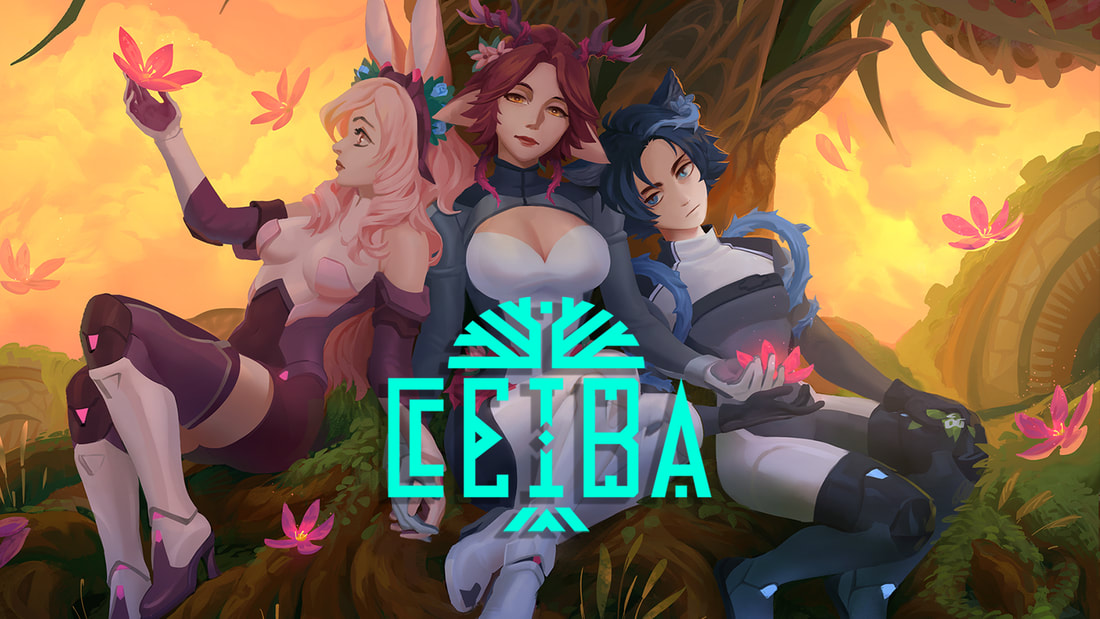
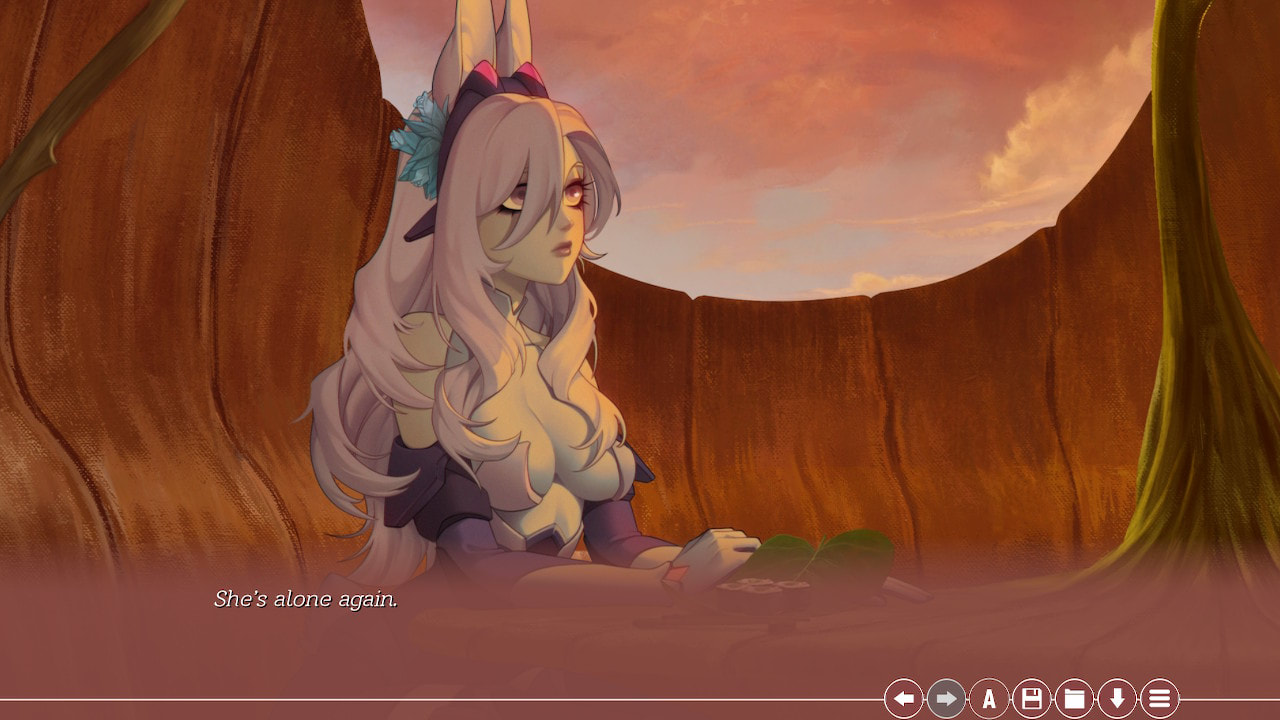
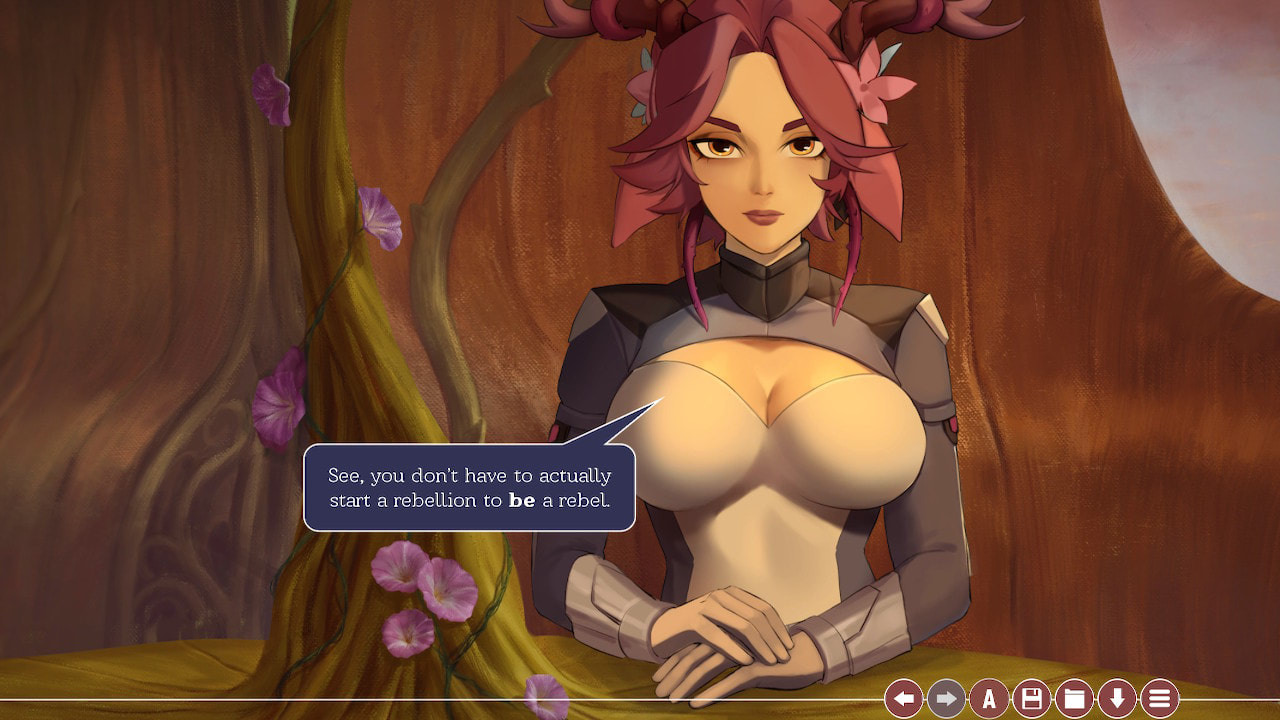
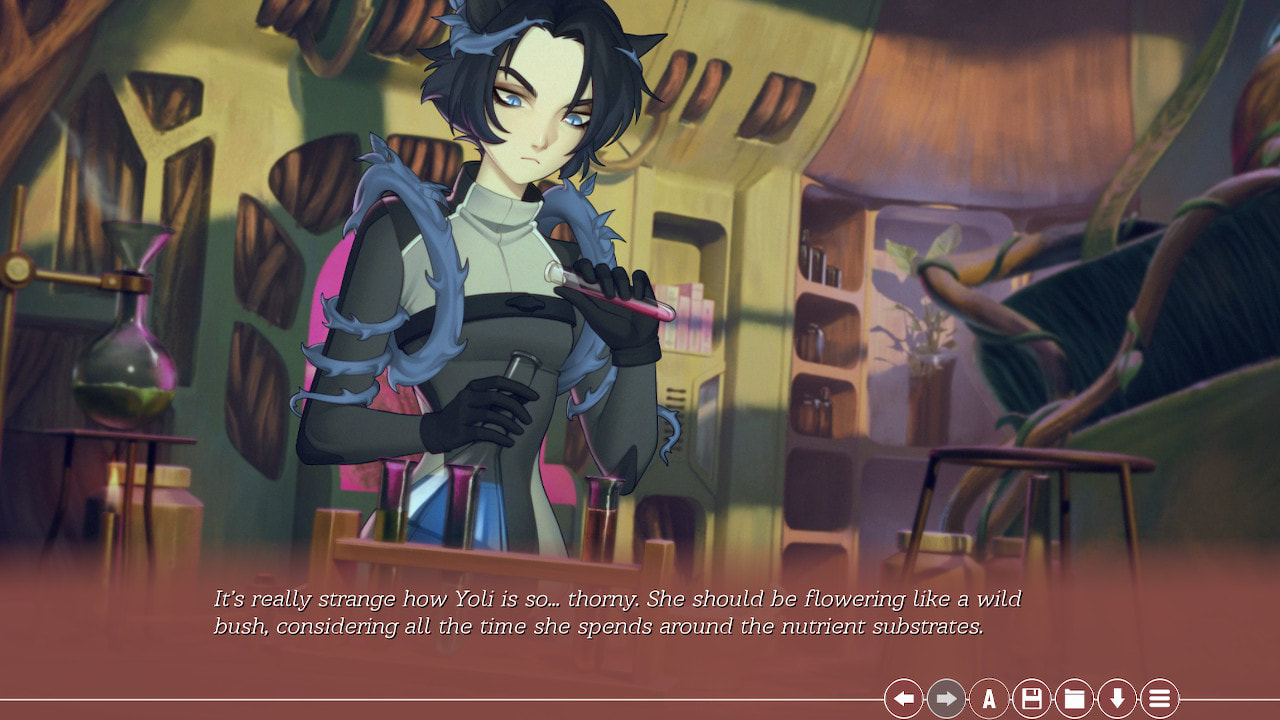
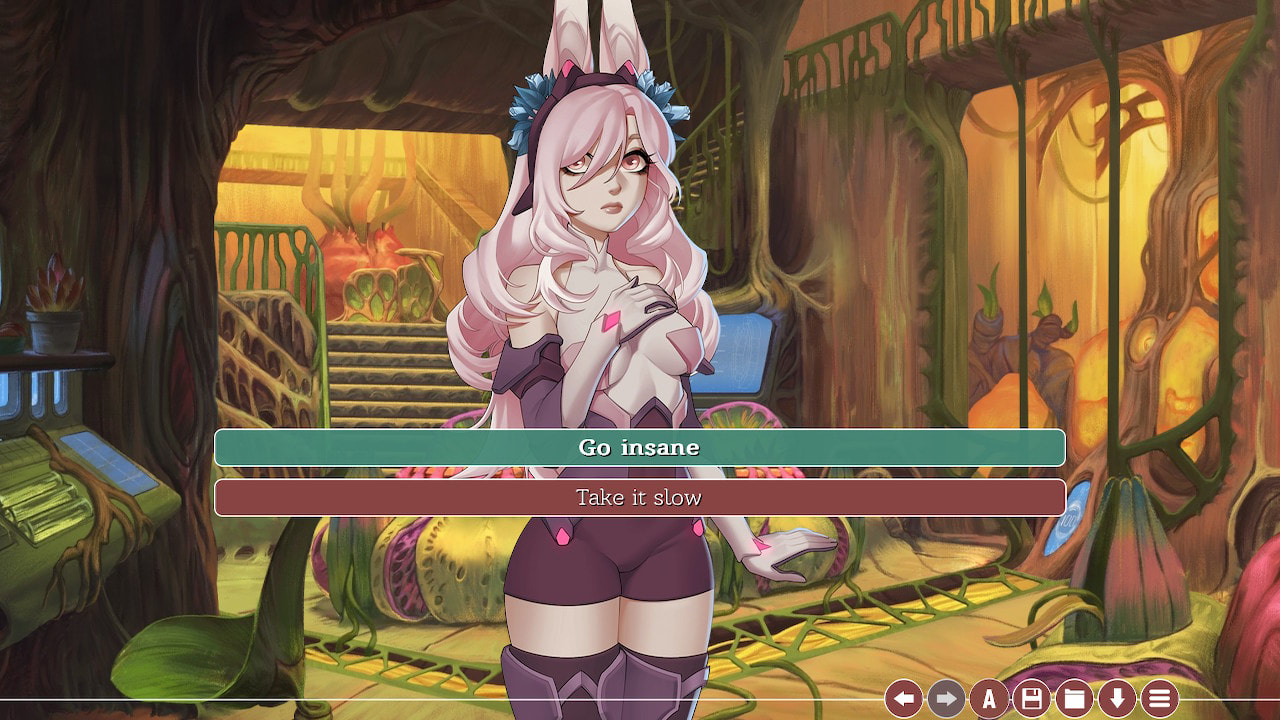
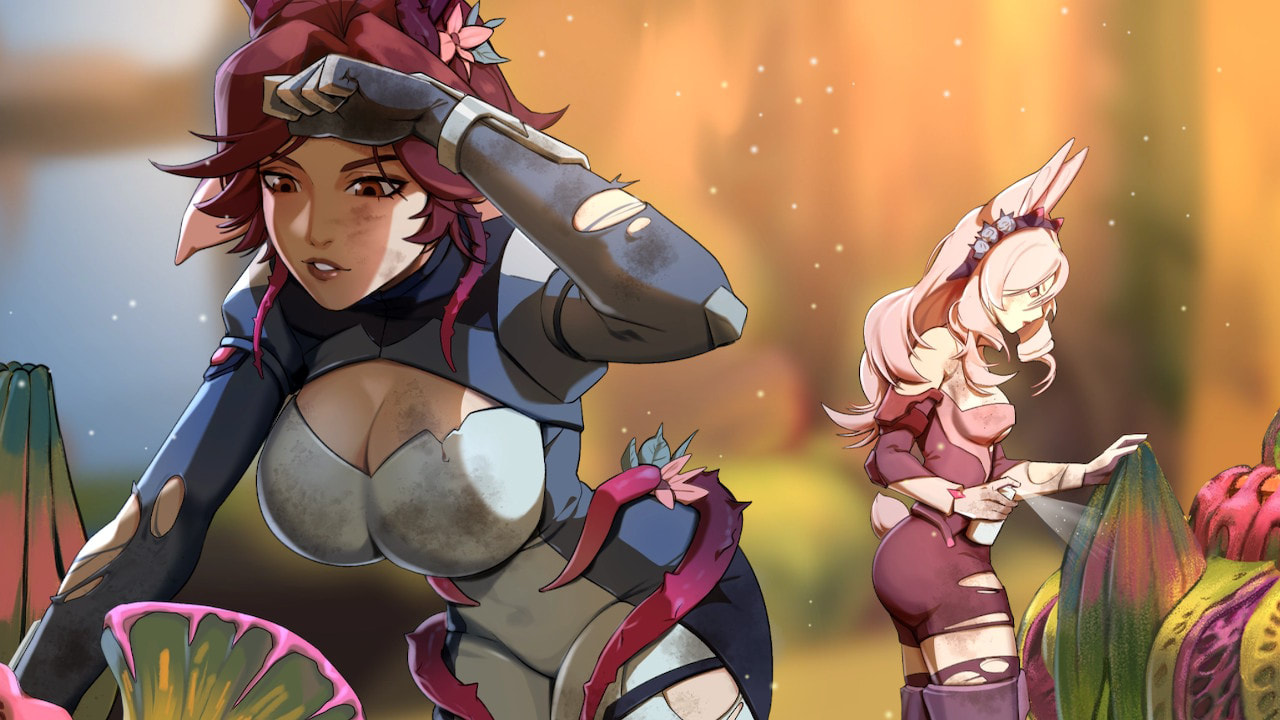
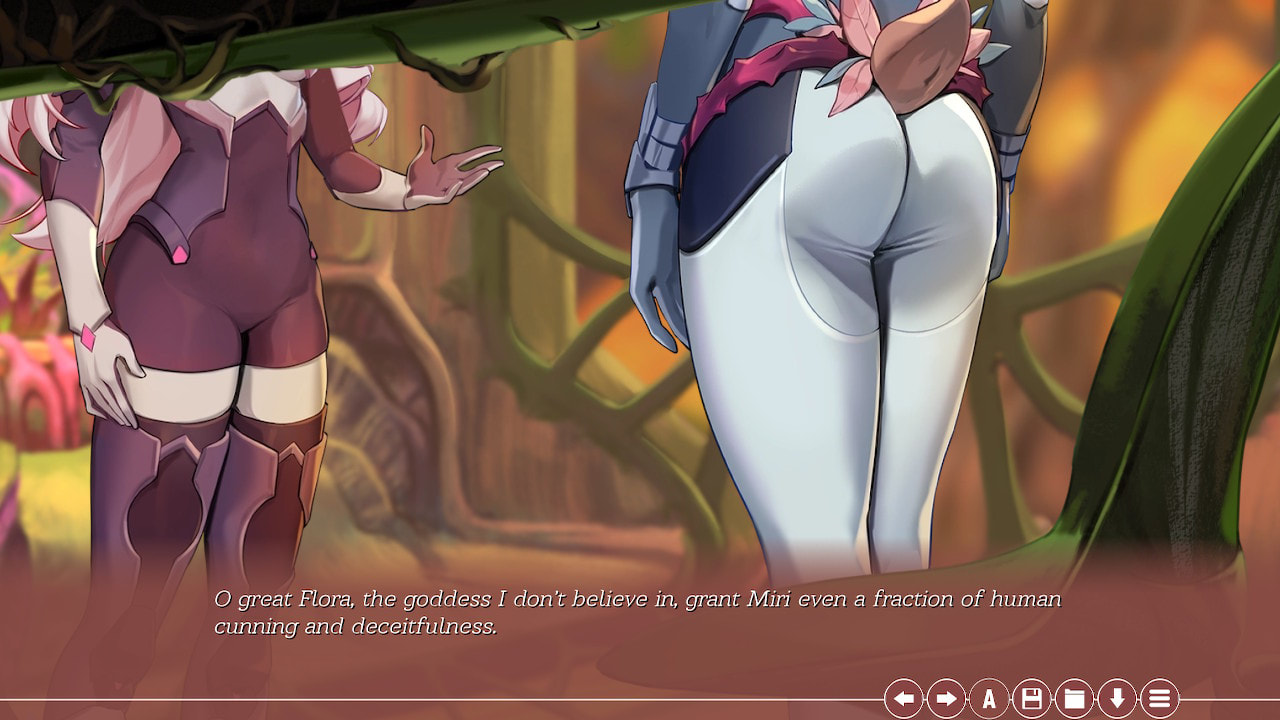
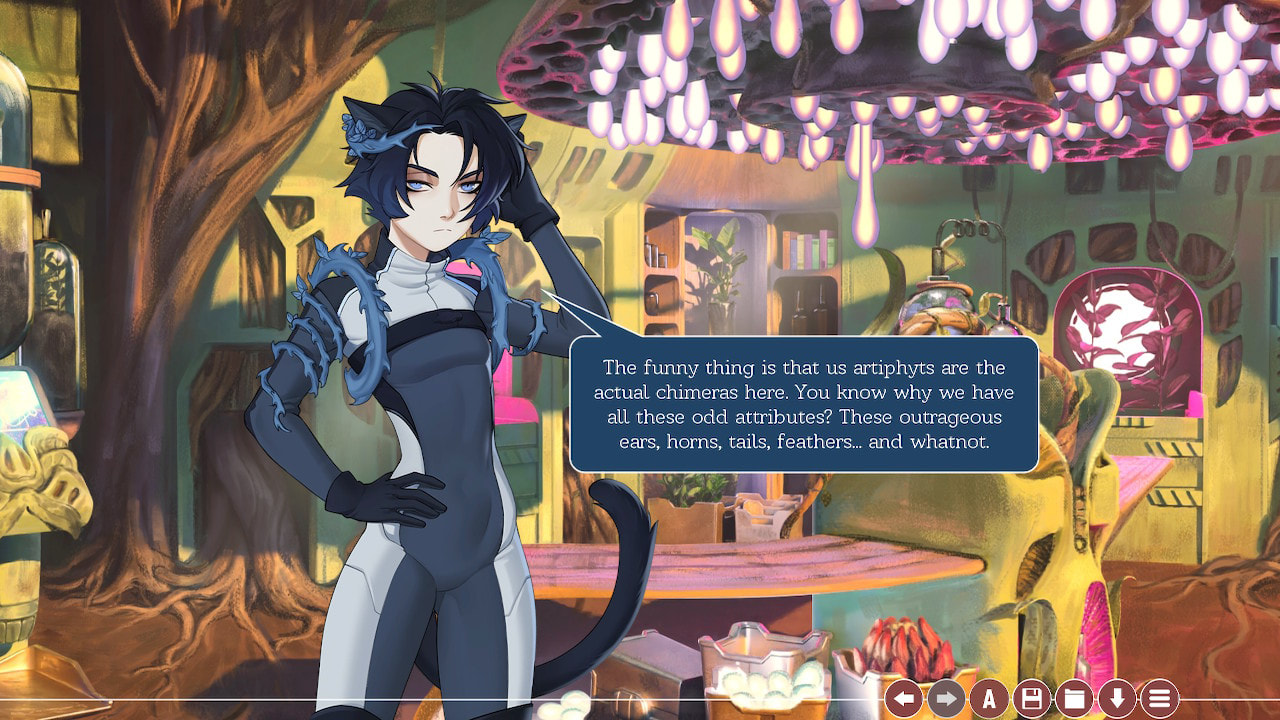
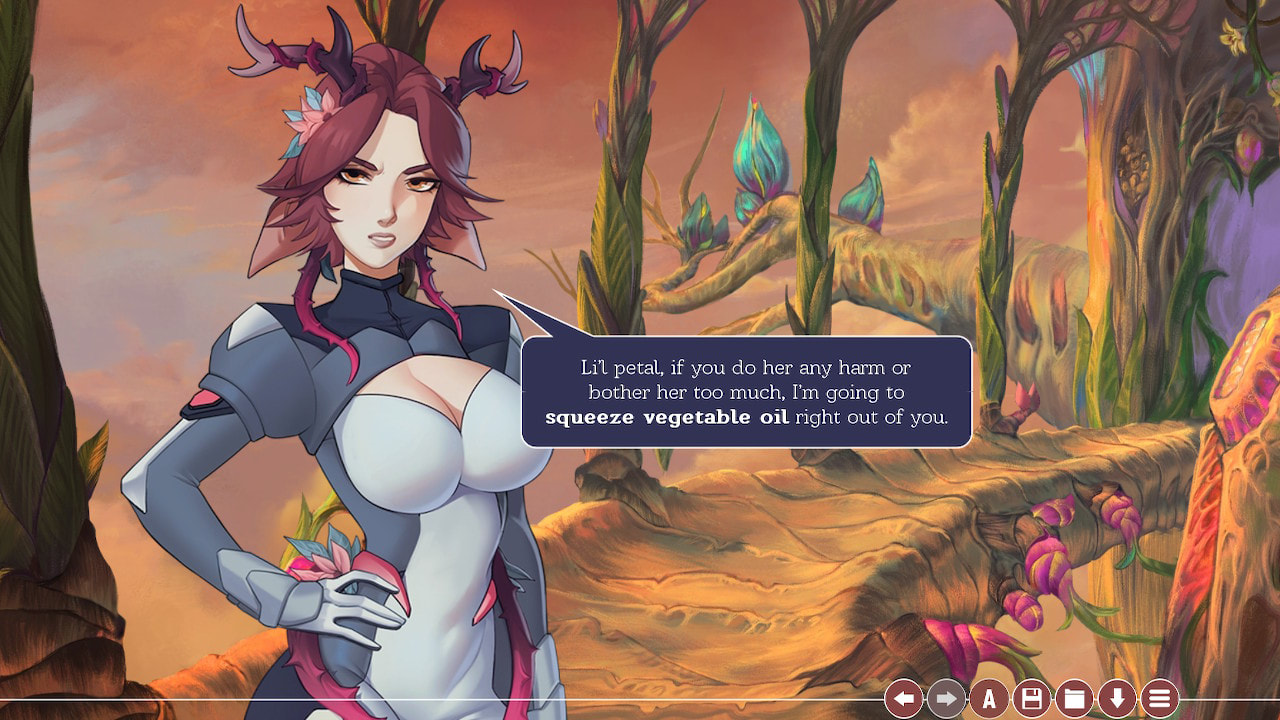
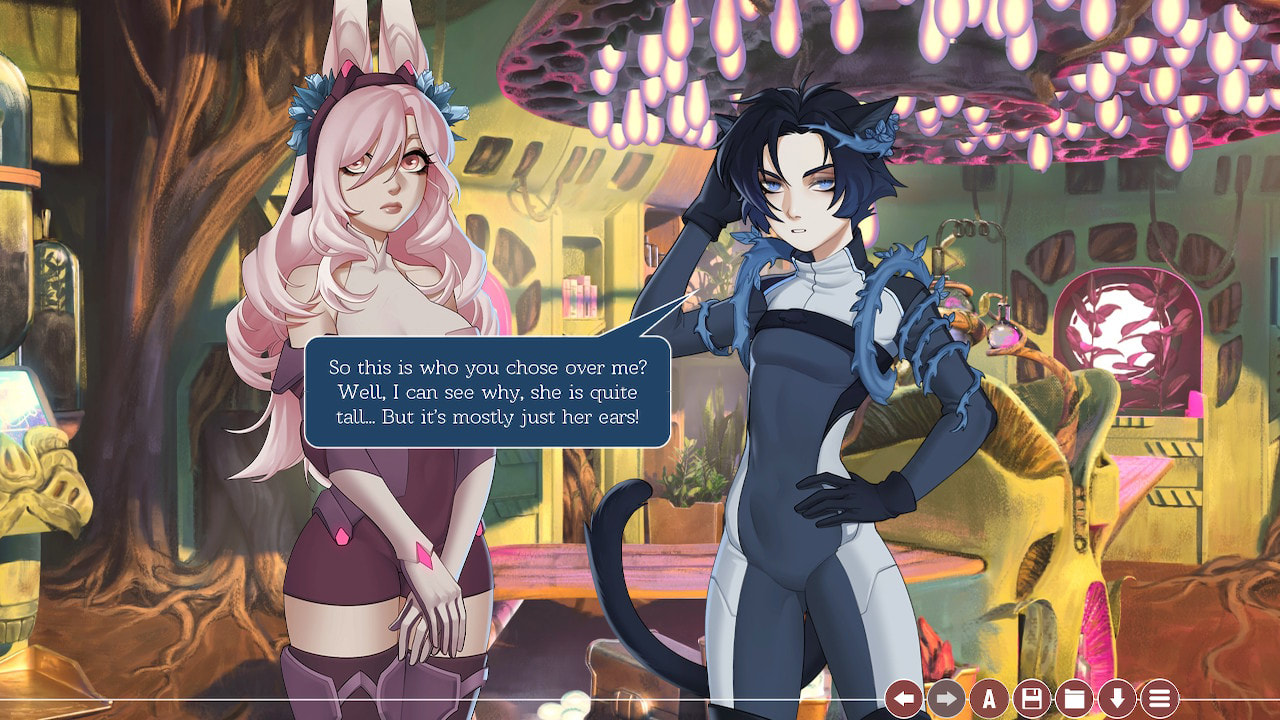
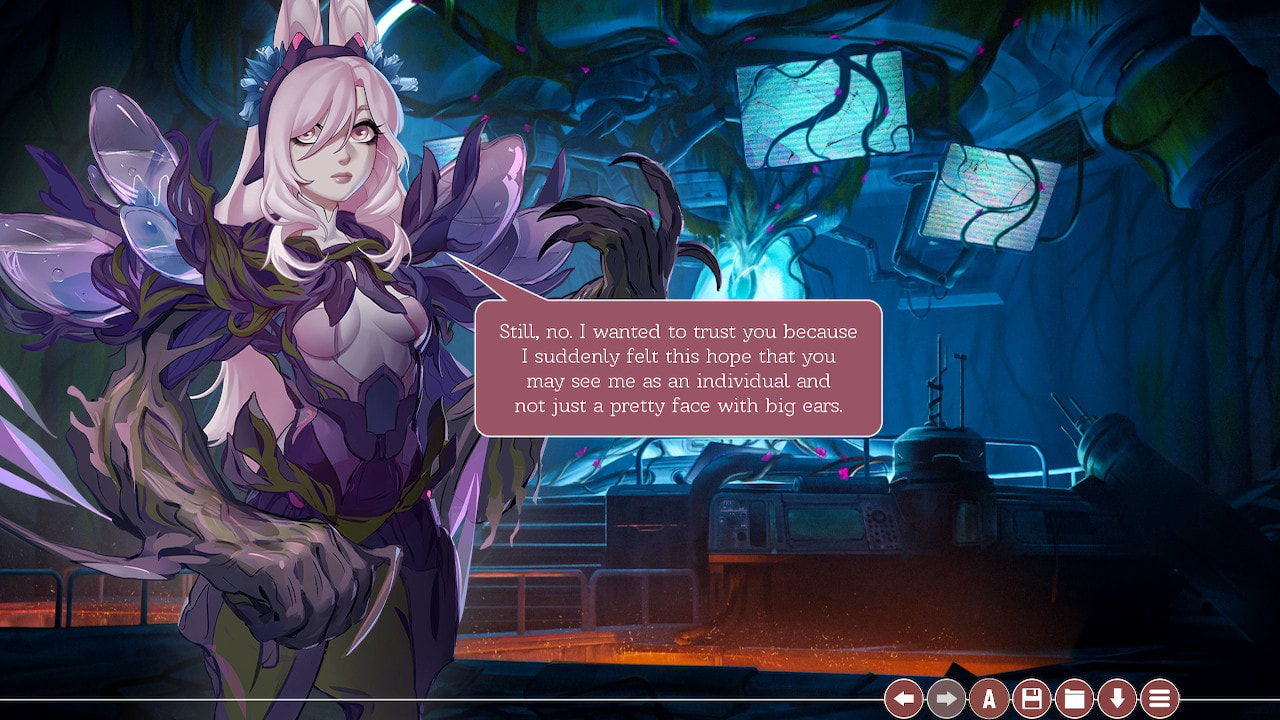
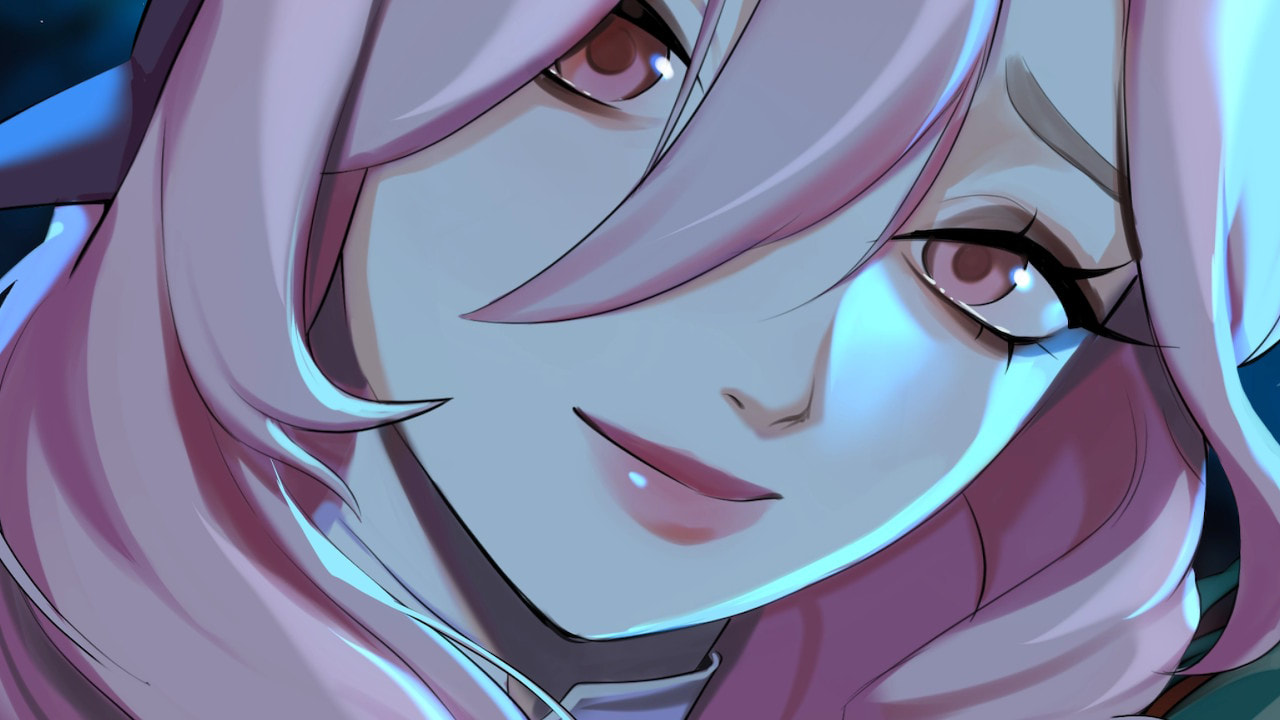
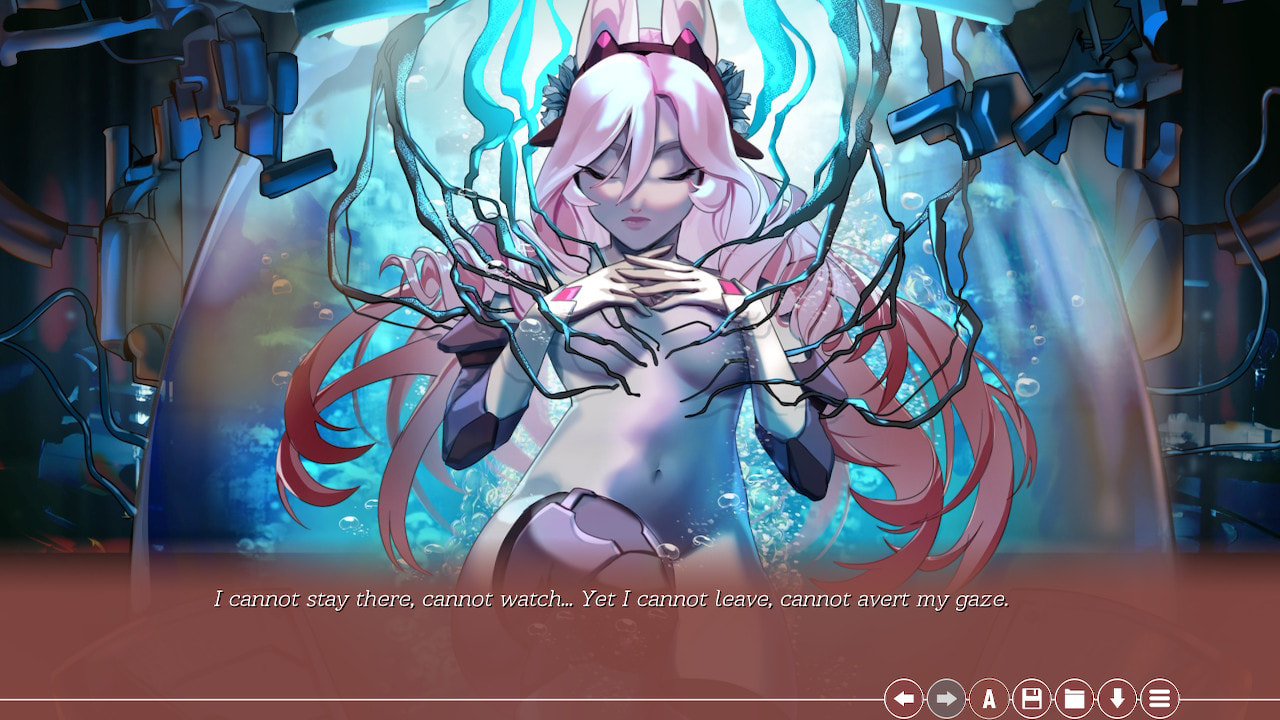
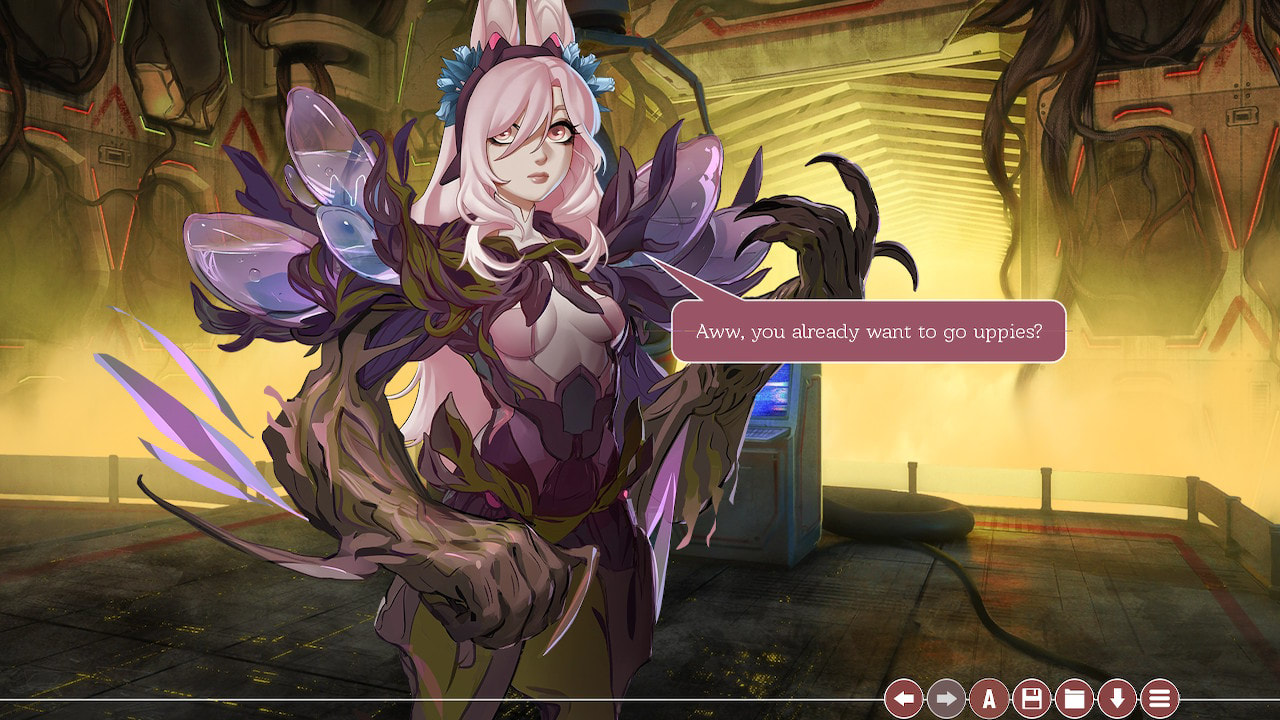
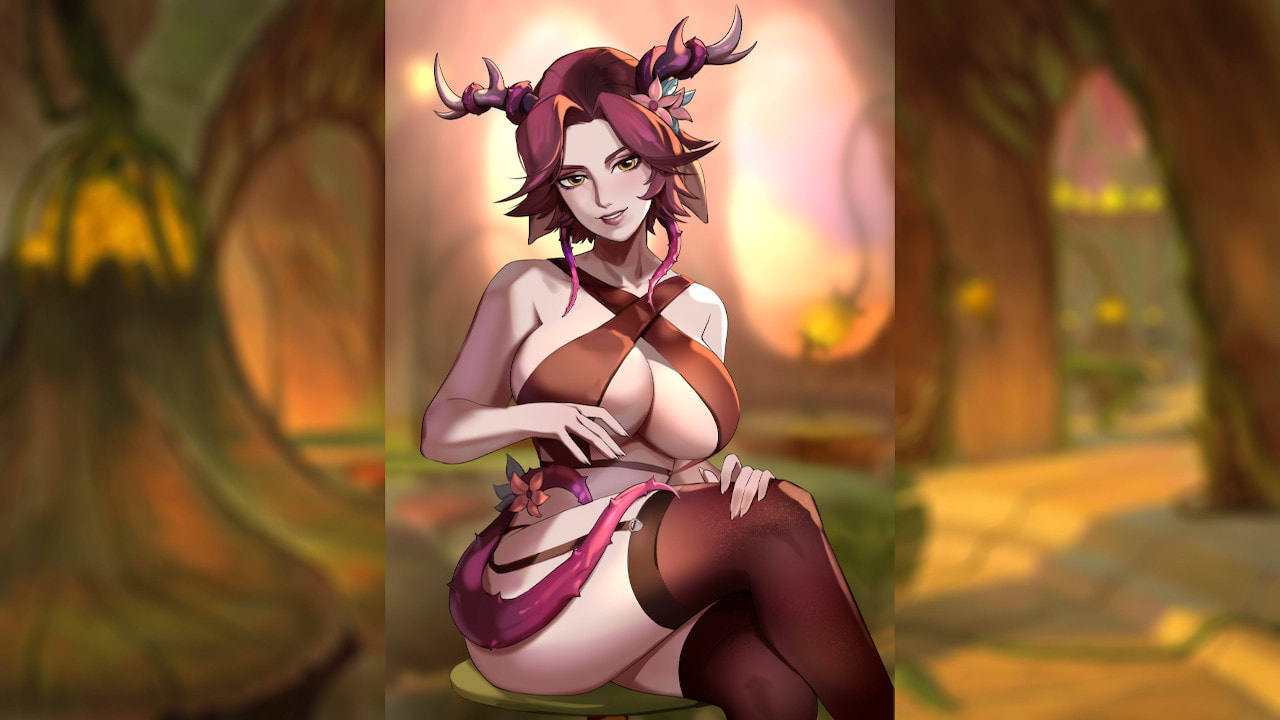
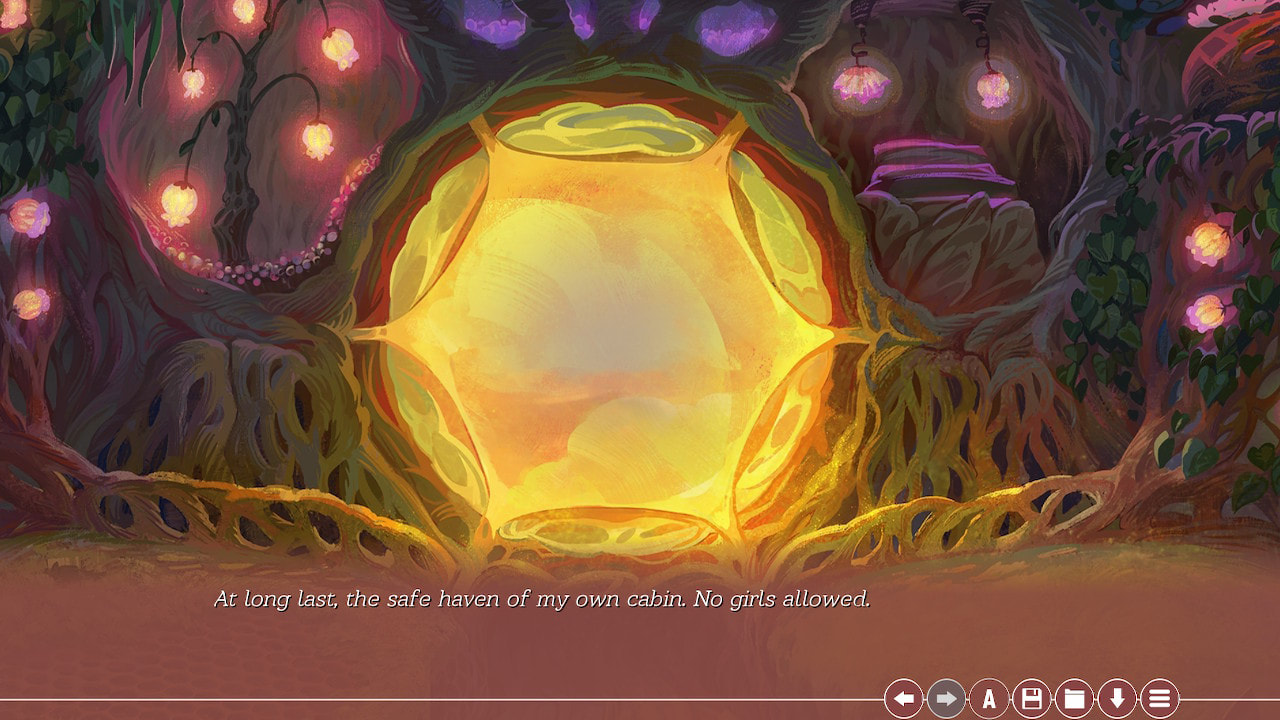

 RSS Feed
RSS Feed